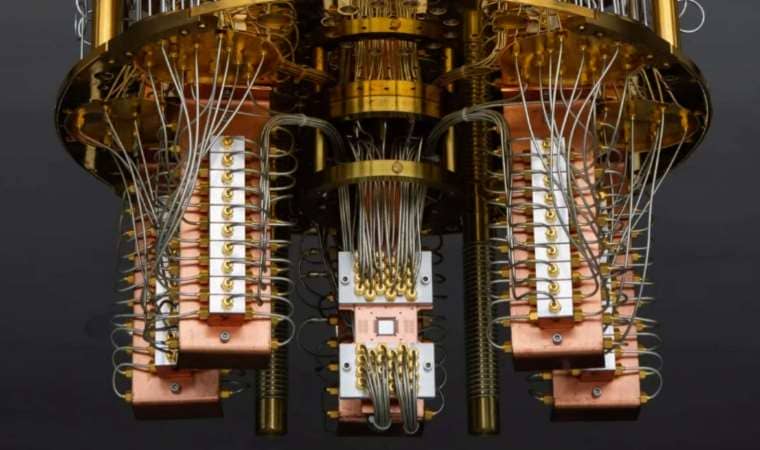Türkiye’s first quantum computer, developed by TOBB University of Economics and Technology (TOBB ETU), is set to go live Wednesday, marking a critical milestone in the nation’s technological advancement.
The quantum computer is expected to enhance data security, artificial intelligence, defense strategies and simulations, among other fields.
Decadelong effort culminates in historic milestone
Since 2010, TOBB ETU has been conducting research in quantum technologies, aiming to place Türkiye among the leading nations in this field. The quantum computer, a result of these efforts, will be unveiled during a ceremony at TOBB ETU’s Technology Center.
The event will feature key dignitaries, including Vice President Cevdet Yilmaz and Defense Industries President Professor Haluk Gorgun.
The new quantum system is designed with a scalable infrastructure, reinforcing Türkiye’s vision of becoming a leader in quantum technologies.
What is quantum computer?
Quantum computers function similarly to classical computers but utilize quantum bits, or qubits, instead of traditional binary bits. Qubits are unique systems that can represent data in a superposition of states, unlike classical bits that are limited to two states—0 or 1.
These qubits can be composed of subatomic particles, superconducting electric circuits, or other atomic systems. The superposition property allows qubits to exist in multiple states simultaneously, represented as amplitudes of both 0 and 1.
Additionally, quantum computers employ a phenomenon known as quantum entanglement. This process enables the amplitudes to apply across multiple qubits at the same time, significantly enhancing their computational power and ability to solve complex problems.
By leveraging these principles of quantum mechanics, quantum computers offer a fundamentally different and more powerful approach to information processing compared to their classical counterparts.

Quantum computing: A leap in processing power
Unlike classical computers, which operate using binary bits, quantum computers use quantum bits (qubits), capable of existing in multiple states simultaneously. This allows them to solve complex problems exponentially faster, enhancing computational power.
Applications of quantum computers span:
- Cryptography: Advanced data encryption.
- Artificial Intelligence: Faster processing of complex algorithms.
- Defense: Development of strategic technologies.
- Climate modeling: Simulation of global warming and disaster scenarios.
- Material science: Discovery of next-generation materials.
These advancements are expected to boost Türkiye‘s competitiveness in global information technology.
